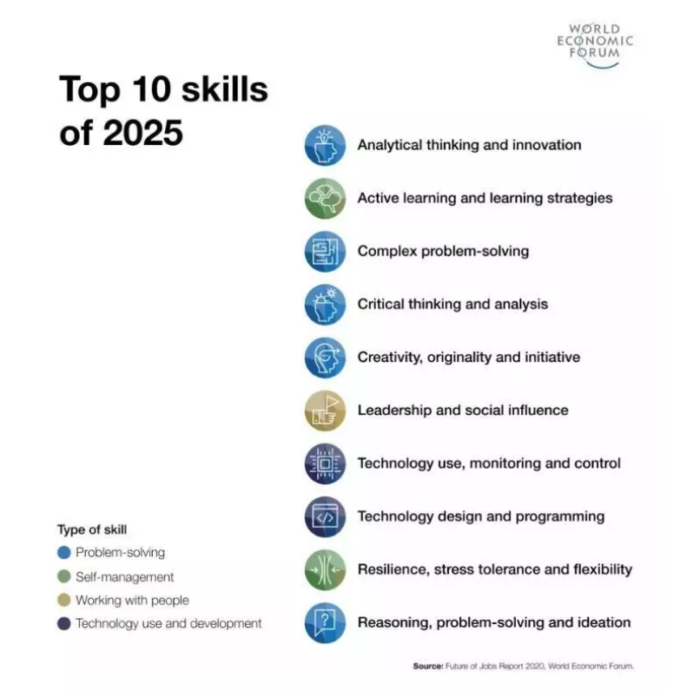Understanding current and future capability needs in your business
- HRM Asia Newsroom

Did you know…
Today 94% of senior executives in Singapore predict significant disruption in the next three years, compared to 25% in 2018 (Source: Mercer, 2020 Global Talent Trends).
While most business leaders would agree that organisational capability analysis leads to an enhanced understanding of how to deliver a competitive advantage, many don’t know the process to ensure a maximised return on investment.
Even as early as 2004, The Harvard Business Review identified organisational capabilities within a company as the delivery of its total combined resources, skills and abilities; defined by the output of both technical and soft skills. This was seen to be a static snapshot of potential business performance in a moment of time.
To quote: “They represent the ways that people and resources are brought together to accomplish work. They form the identity and personality of the organisation by defining what it is good at doing and, in the end, what it is.”
A business and its employees have the same training requirements
The onus of the organisational capability process generally falls on HR Leaders or Learning & Development teams. Collectively, the HR function are seeing an increase in demand for training, dictated by both business leaders and employees alike, all with the same requirement – quick training solutions, that can be delivered in a variety of ways that shift the dial in terms of capability; reflecting on both individual and organisational performance.
When understanding what the future skills look like, it is important to consider the ever-changing landscape coupled with accelerating digitisation in the workforce, even though it is easy to assume this is addressed through upskilling technical skill requirements.
However, The World Economic Forum’s 2020 research identifies capability shifts and highlights the continued importance of building soft skills: “The top skills and skill groups which employers see as rising in prominence in the lead up to 2025 include groups such as critical thinking and analysis as well as problem solving, and skills in self-management such as active learning, resilience, stress tolerance and flexibility.”
The below table highlights these skills and skill groups:

But what are skills for now and the future?
The World Economic Forum’s findings have also reinforced our own research. We surveyed 1,500 professionals and asked them to identify the skills they think people in their profession need most training on in the present, and to predict which skills are going to be a key training priority in the future.
Our research identified the skills people predict they will need in the future. These are a mixture of soft skills – such as personal learning and development, managing people, and building relationships – and hard technical skills such as AI, automation, big data and analytics.
This matches the research we see from other firms and commentators on the shifting balance between technical and soft skill requirements: as greater technical aptitude increases, the argument goes, more analysis and processing is done for professionals automatically, freeing them up to invest more time in the tasks that require ‘soft skills’ – skills that can’t be replicated by a technology or an algorithm.
How do HR teams keep up with current and future skill demands?
Noting the above, it’s easy to identify the immediate challenge that HR Leaders and Learning & Development teams are faced with. This includes keeping abreast of the external research and thought leadership that discusses future skills, unique to industries, job functions and job roles, while meeting internal requirements to identify and understand current and future capability gaps.
HR functions don’t always have the time, resource or knowledge to prioritise this agenda, even though it is increasing in priority more than ever before.
Our organisational capability approach was designed to support employers with this requirement.
So, how does the organisational capability process work for our clients?
- We bring our industry knowledge, job family insight and understanding of the emerging skills required by their business in the ever-changing technical landscape.
- We get to know their business through consultative sessions, building our understanding of their strategic direction, people strategies and workforce plans.
- We then use our skills matrices to analyse their current learning needs and future skills requirements. We look across every level – from entry level, through to middle management and senior management – what we refer to as foundation, core and strategic levels of an organisation, and how those skills build from one level of role to another.
- We use online workshops and diagnostic tools to engage their employees at foundation, core and strategic levels. Deep diving and establishing the level of skill each population has versus where it needs to be.
- We then create the heatmap of skills their people need and identify the high priority skills that require training both immediately and in the future.
- The outcome is a Capability+ report that summarises the skills data we collected on their employees with tailored capability plans and training programmes to address their immediate and future skills needs.
We have recently partnered with several global clients, each with unique business challenges, that have been addressed through the adoption of the organisational capability process we employ.
To showcase a challenge that is resonating across many organisations, let’s review the following:
The Leadership Conundrum – Leading in a (COVID) Digital World
|
This client approached us with a desire to engage their leadership in the future skills agenda. Their organisation had an active and heavily vested L&D department in tune with internal capability requirements, while being aware of the need to address current and future skills gaps. However, the L&D team wanted to champion the importance and potential impact of digital transformation with the broader leadership, in order to create a sense of urgency around the future skills agenda. The backdrop to this scenario was an organisation that operated in a relatively traditional sector, with staff, particularly those at senior levels, having an average tenure of more than eight years. Organisational innovation had not previously been a priority, and strategic planning at department level had not typically included an explicit consideration of the implications from dramatic shifts taking place in parts of the industry. |
Their initial approach
The client enlisted the support of BPP’s Organisational Capability team to leverage our Capability+ skills diagnostic process and methodology. This acted as a welcome catalyst in a wider plan to;
- Present industry trends in a variety of engaging ways, in line with thought-leadership and research papers, that addressed the immediate need for the business to evolve.
- Ensure employees could identify key trends for their organisation, in relation to specific job roles, for the immediate time and the future.
- Support leaders to identify future skills needs, identifying major skills gaps and heat mapping skills priorities, in line with BPP’s organisational capability process.
- Provide a roadmap for future skills training priorities.
How we approached it
The first step was to develop a training programme for the organisation’s leaders. This included Digital Leadership, to share insights into the emerging capabilities leaders need in the new organisational landscape of Digital Futures, and Trendspotting which focused on the identifying the key trends shaping organisations of the future.
The programme was designed to equip leaders with the capabilities needed in a rapidly changing organisational context, along with the tools to help them identify trends affecting their industry.
In addition, it aimed to create a focal point for internal conversations, to act as a catalyst to increase awareness of the issues and to encourage engagement with the transformation agenda.
The training programme was followed by a future skills workshop with staff across the organisation working to identify major skills gaps and heatmap skills priorities. This would help to ensure that future skills remained on the leadership agenda, along with a set of resources developed for all staff. This included additional materials that would be shared at regular intervals to provide further opportunities for engagement with key issues.
The result
The training programme had a considerable impact among participants, with 92.8% able to clearly identify three ways in which they would apply training knowledge to their current roles.
|
In addition, the data collected at the future skills workshop enabled BPP’s Organisational Capability team to create a future skills report and road map for a range of different soft and technical skills. The analysis and insights shared with the client has provided a framework to support ongoing planning to meet future skills across the organisation. |
Our client success stories are not limited to industry or job function. From insurance, to accountancy and law, the consultancy we provide gives clients a wealth of skills data on their people, arming L&D functions with the business case needed to accelerate the adoption of new programmes, as well as mechanisms to attribute ROI for training they’ve since deployed.
About BPP
As a trusted training provider to some of the world’s biggest firms, BPP Education Group delivers insight and thought leadership on the development of future skills. They help businesses to identify training needs and identify skills gaps through detailed capability analysis of their current workforce in sectors such as law, financial services and accountancy.
To find out more on how BPP can assist you in understanding your current and future business capability needs, visit https://www.bpp.com/business/capability-plus.






